To begin recovering from addiction effectively, you'll need to take five proven steps: Initially, acknowledge your powerlessness and seek professional help. Next, build a strong support network through group programs like AA. Then, engage in evidence-based therapies such as CBT and MAT. Fourth, develop clear personal motivation and recovery goals. Ultimately, create a sustainable long-term plan. Understanding these steps is just the start of your expedition toward lasting recovery.
 While many people attempt to overcome addiction through willpower alone, research consistently shows that acknowledging powerlessness and seeking professional help dramatically increases the chances of successful recovery. By cultivating self-awareness about your inability to control addiction independently, you're taking an essential primary step that aligns with evidence-based treatment approaches. Recovery support services have existed in various forms since the mid-19th century and continue to play a vital role in addiction treatment today. Studies reveal that integrating medical interventions with professional support leads to better outcomes, with 57% of individuals reducing substance use through specialty treatment. Though natural recovery is possible, structured programs offer higher success rates, 49% for inpatient and 43% for outpatient completion. When you recognize the need for external support, you're not surrendering control; rather, you're empowering yourself by accessing proven treatment methods that can effectively address both addiction and potential co-occurring mental health conditions. Attempting to quit without professional guidance often leads to dangerous situations, as quitting cold turkey frequently results in relapses and possible accidental drug overdoses. Unfortunately, despite the benefits of treatment, only 11.8% of individuals with substance use disorders receive specialized addiction treatment.
While many people attempt to overcome addiction through willpower alone, research consistently shows that acknowledging powerlessness and seeking professional help dramatically increases the chances of successful recovery. By cultivating self-awareness about your inability to control addiction independently, you're taking an essential primary step that aligns with evidence-based treatment approaches. Recovery support services have existed in various forms since the mid-19th century and continue to play a vital role in addiction treatment today. Studies reveal that integrating medical interventions with professional support leads to better outcomes, with 57% of individuals reducing substance use through specialty treatment. Though natural recovery is possible, structured programs offer higher success rates, 49% for inpatient and 43% for outpatient completion. When you recognize the need for external support, you're not surrendering control; rather, you're empowering yourself by accessing proven treatment methods that can effectively address both addiction and potential co-occurring mental health conditions. Attempting to quit without professional guidance often leads to dangerous situations, as quitting cold turkey frequently results in relapses and possible accidental drug overdoses. Unfortunately, despite the benefits of treatment, only 11.8% of individuals with substance use disorders receive specialized addiction treatment.
 Successful addiction recovery depends on implementing proven therapeutic approaches that address both the physical and psychological aspects of substance dependence. You'll find that evidence-based treatments like Medication-Assisted Treatment (MAT) combined with Cognitive Behavioral Therapy (CBT) are particularly effective in identifying individualized treatment needs and managing withdrawal symptoms. Evidence-based practices have been rigorously tested through scientific protocols to ensure treatment effectiveness. Treatment programs often incorporate holistic therapies to provide comprehensive healing approaches. To support your recovery expedition, you can benefit from Dialectical Behavior Therapy's mindfulness techniques and emotional regulation strategies, while family-based therapies help restructure relationships that foster long-term lifestyle changes. Further, behavioral interventions like Contingency Management and Motivational Enhancement Therapy provide practical tools for maintaining sobriety. By engaging in these therapeutic approaches, you're not just treating addiction symptoms - you're developing essential skills and support systems that boost your chances of sustained recovery.
Successful addiction recovery depends on implementing proven therapeutic approaches that address both the physical and psychological aspects of substance dependence. You'll find that evidence-based treatments like Medication-Assisted Treatment (MAT) combined with Cognitive Behavioral Therapy (CBT) are particularly effective in identifying individualized treatment needs and managing withdrawal symptoms. Evidence-based practices have been rigorously tested through scientific protocols to ensure treatment effectiveness. Treatment programs often incorporate holistic therapies to provide comprehensive healing approaches. To support your recovery expedition, you can benefit from Dialectical Behavior Therapy's mindfulness techniques and emotional regulation strategies, while family-based therapies help restructure relationships that foster long-term lifestyle changes. Further, behavioral interventions like Contingency Management and Motivational Enhancement Therapy provide practical tools for maintaining sobriety. By engaging in these therapeutic approaches, you're not just treating addiction symptoms - you're developing essential skills and support systems that boost your chances of sustained recovery.
 Once you've established your core motivations and goals, building a sustainable long-term recovery plan will strengthen your path to lasting sobriety. Start by engaging in evidence-based therapies like CBT or DBT to develop essential coping skills and emotional regulation strategies. You'll need to create a structured daily routine that includes maintaining a stable living environment, pursuing meaningful activities, and practicing consistent self-care. Having a fixed daily schedule helps maintain stability and reduces relapse risks. Consider incorporating experiential therapy activities to process complex emotions through creative expression and guided experiences. Incorporate multiple layers of support through continued therapy, peer support groups, and family involvement. Understanding that chronic brain disease requires ongoing management is crucial for maintaining recovery progress. Develop specific strategies to manage triggers related to your substance of choice, whether it's alcohol refusal skills or alternative pain management techniques. Remember to focus on holistic wellness by integrating exercise, nutrition, and mindfulness practices while building new social connections that support your recovery expedition.
Once you've established your core motivations and goals, building a sustainable long-term recovery plan will strengthen your path to lasting sobriety. Start by engaging in evidence-based therapies like CBT or DBT to develop essential coping skills and emotional regulation strategies. You'll need to create a structured daily routine that includes maintaining a stable living environment, pursuing meaningful activities, and practicing consistent self-care. Having a fixed daily schedule helps maintain stability and reduces relapse risks. Consider incorporating experiential therapy activities to process complex emotions through creative expression and guided experiences. Incorporate multiple layers of support through continued therapy, peer support groups, and family involvement. Understanding that chronic brain disease requires ongoing management is crucial for maintaining recovery progress. Develop specific strategies to manage triggers related to your substance of choice, whether it's alcohol refusal skills or alternative pain management techniques. Remember to focus on holistic wellness by integrating exercise, nutrition, and mindfulness practices while building new social connections that support your recovery expedition.
Acknowledging Powerlessness and Seeking Professional Help

Building a Strong Support Network Through Group Programs
As individuals progress through recovery, building a strong support network through group programs becomes an essential cornerstone of long-term success. Studies show that participating in peer-led initiatives can reduce relapse risk by up to 25%, while regular attendance in groups like AA demonstrates a 35% lower chance of relapse. Research consistently indicates that peer support services improve treatment engagement and reduce substance use behaviors. You'll find assorted evidence-based options, including CBT groups, trauma-informed programming like Seeking Safety, and specialized women's recovery groups. 90% of individuals who maintain sobriety for two years successfully extend their recovery to ten years or beyond. Group participation offers multiple benefits beyond addiction recovery. You'll experience improved mental health outcomes, with 85% of participants reporting augmented self-worth and decreased depression symptoms. The mutual support dynamic creates a powerful healing environment where both giving and receiving help strengthens recovery. Through shared experiences and consistent peer support, you'll develop the emotional resilience and social connections necessary for sustained sobriety. Members can benefit from social learning theory as they observe and model successful recovery behaviors from their peers.Implementing Evidence-Based Therapeutic Approaches

Developing Personal Motivation and Recovery Goals
Because lasting recovery requires internal drive and clear direction, developing personal motivation and setting achievable goals form the foundation of your healing expedition. Client-centered counseling approaches recognize that you already possess what you need to make and sustain positive changes. By exploring intrinsic values and maintaining mindfulness practices, you'll strengthen your commitment to sobriety while crafting meaningful objectives that align with your core priorities. Cultivating a strong support network provides crucial accountability and encouragement throughout your recovery journey. Working with counselors who demonstrate empathy and warmth leads to better treatment outcomes and longer-lasting recovery.- Use decisional balance exercises to weigh the benefits of sobriety against the costs of addiction, helping you clarify your reasons for change
- Set SMART recovery goals that are specific, measurable, and time-bound, like attending three weekly therapy sessions or achieving 30 days of continuous sobriety
- Engage in regular self-reflection through journaling and meditation to identify triggers, track progress, and reinforce your dedication to recovery
Creating a Sustainable Long-Term Recovery Plan







